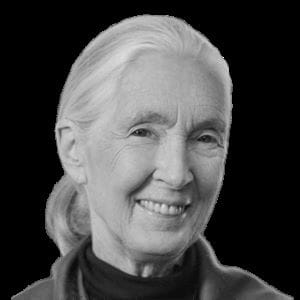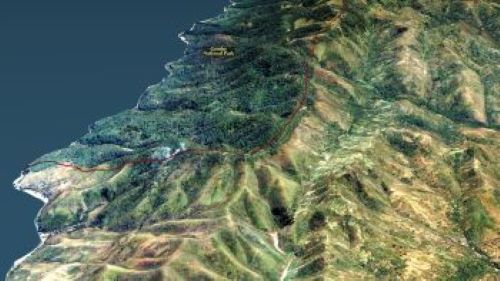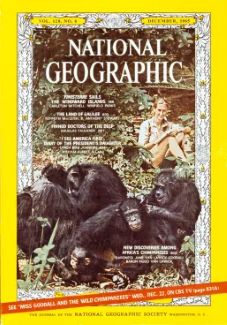Happy 90th Dr. Jane Goodall

Jane Goodall turns 90 today. I always greatly admired and loved Dr. Goodall. She had the life in the wild I wanted to live when I was young. I was able to meet her once in a bookstore in Marin county, which is slightly amusing considering life in the hills of Gombe couldn't be more different in every respect than those in the hills of Marin.
At 26, Goodall was one of three young women Kenyan anthropologist Louis Leakey sent to study humanity's closest surviving primate relatives. She went to Tanzania to study Chimps, Dian Fosse to Rwanda with Mountain Gorillas, and Birute Galdikas to Borneo with Orangutans. Over decades, Goodall made numerous discoveries about Chimpanzees, helping grow our understanding of both Chimps and ourselves.
I was ahead of Dr. Goodall in one way. Even though she had my life in the bush, I was taught at the University of Arizona, several years before her realization, the key to conservation was not with the animals, but with people. That if people didn't change their ways, what was left of the wild would soon enough disappear. In 1986, she attended a primatologist symposium at Lester Fischer's Lincoln Park Zoo in Chicago, “learning about the trade in chimpanzees for their meat and the treatment of some chimps in laboratories, made her realize she needed to shift her focus from close-up study of chimps in the wild to a bigger-picture, more holistic approach to the conservation of humans' closest living relative.” That meant working with humans and conservation is the most radical politics.
Since that point, she has spent the vast majority of her time on the road across the planet teaching. This, her 91st year, she will be traveling and teaching 300 days. She's a lot smarter about teaching than I ever was, focusing on young people with her Roots and Shoots program. Where I spent far too much time in an increasingly dysfunctional political arena, hopelessly attempting to get Americans to draw some connection between our tremendously resource wasting lifestyles and its impact on what was left of the global wild.
Gombe is now a tiny forested preserve on the shores of Lake Tanganyika with only 95 chimps. The below picture from NASA shows the deforestation up to the edges of the park. They have worked with the farmers around the park to develop more sustainable, non-industrial, agriculture practices, but as the picture shows, it’s all pretty tenuous, as is all that’s left of the wild across the rest of the planet.

It took me 40 years to finally first get to Africa, where I spent six weeks in Tanzania trying to spend as much time in the bush as I possibly could. I didn't get to Gombe, but had the greatest privilege of spending time in the Serengeti and Selous, sublime places still populated by mass numbers of large mammals. Tanzania has actually done a good job in conservation, certainly compared to the United States. Tanzania’s conserved wild dwarfs what America conserved in the contiguous states.
Fifteen years later, I was able to return to Tanzania and for six months work with the opposition party Chadema in the 2015 election. They were the most courageous group of people I ever had the honor to stand with. Of my times in Africa, I've always struggled to talk to Americans about life on the continent. Certainly it's easy to show pictures of wildlife, which everyone has seen, much more difficult to convey what is for the vast majority, a largely pre-industrial life — Americans have zero ability to relate.
According to the CIA World Factbook, on an a daily basis, the average Tanzanian uses 1%, 3 million Btu of energy, to an average American's, of any race or gender, use of 300 million Btu. Concerning daily life, that energy consumption makes all the difference. Most incredulously, so-called leaders in America claim we need to double and triple our electricity consumption as some sort of environmental and technological steps forward. It’d make you cry if it wasn't so stupidly ridiculous.
In a recent interview, Goodall said she remained hopeful that there was time "to try and persuade the very wealthy to be a little more considerate of the future." You can replace very wealthy with Americans.
Happiest Birthday Dr. Jane Goodall, she’s a very beautifully radical lady.

Life in the 21st Century is a reader-supported publication. Please consider becoming a paid subscriber.

